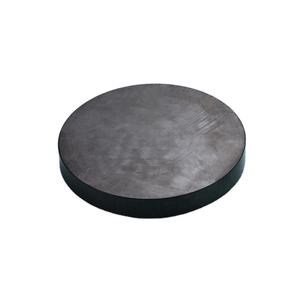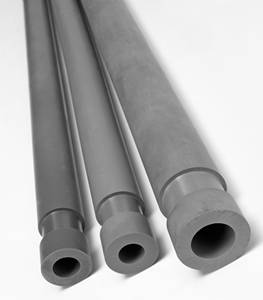Discover Premium Ceramic Products | Durability & Elegance United | Advanced Ceramics
PRODUCT PARAMETERS
Description
Introduction of Boron Carbide Ceramics
Boron carbide ceramics is an inorganic, non-metallic material with carbon and boron as its main components, and its chemical formula is B4C. Since its discovery in the early 20th century, this material has attracted a great deal of attention because of its unique physical and chemical properties. Boron carbide ceramics have an extremely high hardness, second only to diamond and cubic boron nitride, which makes it important in the field of wear-resistant materials. It also exhibits excellent corrosion resistance, high-temperature stability and low-density properties, attributes that make it ideal for the manufacture of bullet-proof vests, nozzles, bearings and other mechanical components that require high wear resistance. Boron carbide ceramics can also be prepared in a variety of shapes and sizes through different processes to meet the needs of different industries.
Characteristics of Boron Carbide Ceramics
Boron carbide ceramics are known for their excellent performance characteristics, starting with their ultra-high hardness and strength, which makes them resistant to severe abrasion and scratching, making them ideal for use in cutting tools and abrasives. Secondly, the material possesses excellent chemical stability and is less likely to react with chemicals such as acids and alkalis, even in extreme environments, making it widely used in certain key components in the chemical industry. In addition, the superior thermal stability of boron carbide ceramics and their ability to maintain structural and property stability at extremely high temperatures makes them one of the key materials in the aerospace and nuclear industries. Finally, it is worth mentioning its lightweight properties, which, due to its low density, make boron carbide ceramics an ideal option for application scenarios that require light weight but high strength. Together, these characteristics give boron carbide ceramics a wide range of applications.
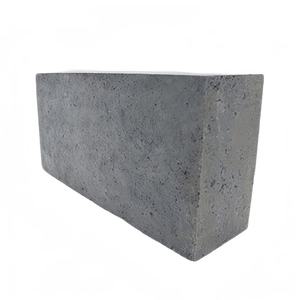
(Low Friction Coefficient Wear-Resisting Boron Carbide Ceramic B4C Brick)
Specification of Low Friction Coefficient Wear-Resisting Boron Carbide Ceramic B4C Brick
Reduced Friction Coefficient Wear-Resisting Boron Carbide Ceramic B4C Brick is a high-performance material created for extreme commercial atmospheres. It combines remarkable hardness with low rubbing, making it ideal for applications calling for resilience and effectiveness. The material is made up primarily of boron carbide (B4C), recognized for its remarkable wear resistance and mechanical strength.
The boron carbide ceramic brick offers a reduced rubbing coefficient, reducing energy loss caused by surface area contact throughout operation. This home decreases endure devices, extending life span. The material’s hardness places 3rd after diamond and cubic boron nitride, offering superb resistance to abrasion and effect. It maintains structural honesty also under hefty lots or high-stress problems.
Chemical security is another key feature. The brick stands up to rust from acids, alkalis, and other aggressive chemicals. This ensures dependable performance in severe environments like chemical processing or metallurgy. The material likewise endures heats up to 800 ° C without substantial destruction, suitable for use in heaters or high-heat equipment.
Machining precision is critical for optimal performance. The bricks are manufactured making use of sophisticated sintering strategies to accomplish limited dimensional tolerances and smooth surface areas. This lowers rubbing further and makes certain seamless assimilation right into machinery. Customized shapes and sizes are offered to meet specific industrial demands.
Applications cover several industries. In mining and mineral processing, the blocks line tools exposed to unpleasant materials. In aerospace, they serve as protective elements in high-speed systems. The energy industry uses them in pump seals and shutoff parts because of their rust resistance. Automotive manufacturers use them in braking systems and engine components to minimize wear.
The product’s lightweight nature contrasted to metals like steel decreases overall equipment weight, improving power efficiency. In spite of its brittleness, correct setup and handling make certain long-lasting reliability. Cost-effectiveness comes from minimized maintenance demands and longer substitute periods.
Ecological benefits include reduced energy intake from lowered friction and prolonged tools lifespan, adding to sustainable techniques. Compatibility with standard commercial adhesives and placing methods streamlines setup. Testing under real-world problems confirms regular efficiency throughout diverse operational situations.
This product fulfills worldwide requirements for high quality and security, backed by extensive quality control processes. Technical support is available for personalized solutions or assimilation difficulties.
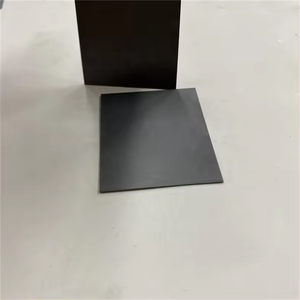
(Low Friction Coefficient Wear-Resisting Boron Carbide Ceramic B4C Brick)
Applications of Low Friction Coefficient Wear-Resisting Boron Carbide Ceramic B4C Brick
Boron carbide ceramic (B4C) blocks are sophisticated products known for their reduced rubbing coefficient and phenomenal wear resistance. These homes make them ideal for demanding industrial applications. B4C bricks excel in settings where reducing rubbing and standing up to abrasion are critical. Their firmness ranks among the highest possible of all crafted porcelains, second just to diamond. This makes them suitable for use in severe conditions.
In mining and product handling, B4C blocks line equipment like chutes, hoppers, and conveyor systems. These parts face continuous contact with unpleasant materials such as ores, crushed rock, and sand. Conventional steel components use down rapidly. B4C blocks last substantially longer. This reduces downtime and maintenance expenses. The reduced rubbing of B4C also lessens product sticking. It ensures smoother circulation during handling.
Production industries use B4C blocks in machinery parts exposed to high wear. Examples consist of reducing devices, nozzles, and pump components. The blocks keep architectural honesty under extreme stress and temperatures. Their resistance to chemical rust includes value in chemical processing plants. B4C blocks manage aggressive substances without deteriorating.
Protection and aerospace industries benefit from B4C’s light-weight yet durable nature. The blocks work as shield plating in armed forces cars and body armor. They take in impact power properly. This shields against projectiles and shrapnel. In aerospace, B4C blocks secure components from abrasive fragments at high speeds.
Energy efficiency is another benefit. The low friction coefficient of B4C reduces power loss in moving components. Machines run with less power usage. This straightens with sustainability objectives. Price financial savings come from extensive service life and lowered replacement frequency.
B4C bricks sustain industries calling for precision and dependability. Their special homes address obstacles in wear management. They boost performance throughout mining, production, defense, and aerospace. The adaptability of boron carbide ceramic ensures its role in advancing commercial technology.
Company Introduction
Advanced Ceramics founded on October 17, 2014, is a high-tech enterprise committed to the research and development, production, processing, sales and technical services of ceramic relative materials and products.. Since its establishment in 2014, the company has been committed to providing customers with the best products and services, and has become a leader in the industry through continuous technological innovation and strict quality management.
Our products includes but not limited to Silicon carbide ceramic products, Boron Carbide Ceramic Products, Boron Nitride Ceramic Products, Silicon Carbide Ceramic Products, Silicon Nitride Ceramic Products, Zirconium Dioxide Ceramic Products, Quartz Products, etc. Please feel free to contact us.(nanotrun@yahoo.com)

Payment Methods
T/T, Western Union, Paypal, Credit Card etc.
Shipment Methods
By air, by sea, by express, as customers request.

5 FAQs of Low Friction Coefficient Wear-Resisting Boron Carbide Ceramic B4C Brick
What is Low Friction Coefficient Wear-Resisting Boron Carbide Ceramic B4C Brick?
Boron Carbide Ceramic B4C Brick is a high-performance material. It combines boron carbide’s extreme hardness with a low friction coefficient. This makes it ideal for high-wear environments. The material resists abrasion, corrosion, and impact. It works well in machinery parts, armor systems, and industrial equipment needing durability.
Why does the low friction coefficient matter?
A low friction coefficient reduces surface resistance during motion. This minimizes energy loss and heat generation. Parts last longer because wear slows down. It improves efficiency in moving components like bearings or seals. The result is lower maintenance costs and extended service life for equipment.
Where can B4C ceramic bricks be used?
These bricks suit harsh conditions. Common applications include mining equipment, sandblasting nozzles, and ballistic armor. They protect machinery exposed to abrasive particles or high-pressure flows. The aerospace and automotive industries use them for wear-resistant components. They also work in chemical plants due to corrosion resistance.
How do B4C bricks compare to traditional materials?
Steel or alumina ceramics wear faster under similar conditions. Boron carbide is harder than most metals and ceramics. It maintains performance in extreme temperatures. The low friction adds extra protection against surface degradation. This reduces replacement frequency and downtime.
Are B4C bricks cost-effective?
Initial costs are higher than standard materials. Long-term savings offset this. Less frequent replacements cut downtime and labor expenses. Energy efficiency from reduced friction lowers operational costs. For industries prioritizing durability and efficiency, the investment pays off over time.
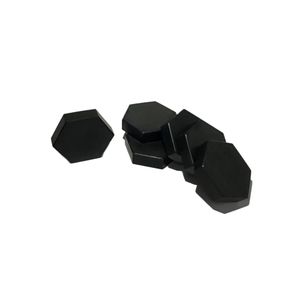
(Low Friction Coefficient Wear-Resisting Boron Carbide Ceramic B4C Brick)
REQUEST A QUOTE
RELATED PRODUCTS
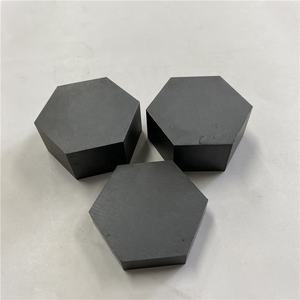
Wear Resistance Boron Carbide Ceramic B4c Hexagonal Tiles
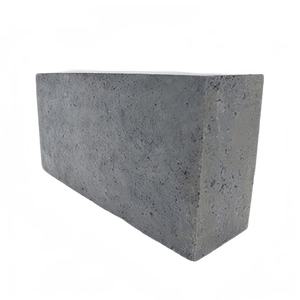
B4C Boron carbide ceramic plate sheet tile
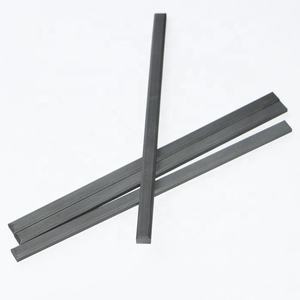
China Factory 10mm boron carbide hexagon ceramic tile B4C hexagonal tile
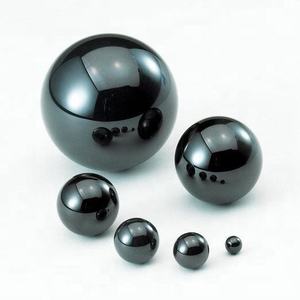
High Hardness Hexagonal B4C Plate Boron Carbide Ceramic Tile

Square / Hexagonal / Cylinder / Rectangle / Single-curved / Cut-angle Boron Carbide / Alumina / Silicon Carbide Ceramic Plate
